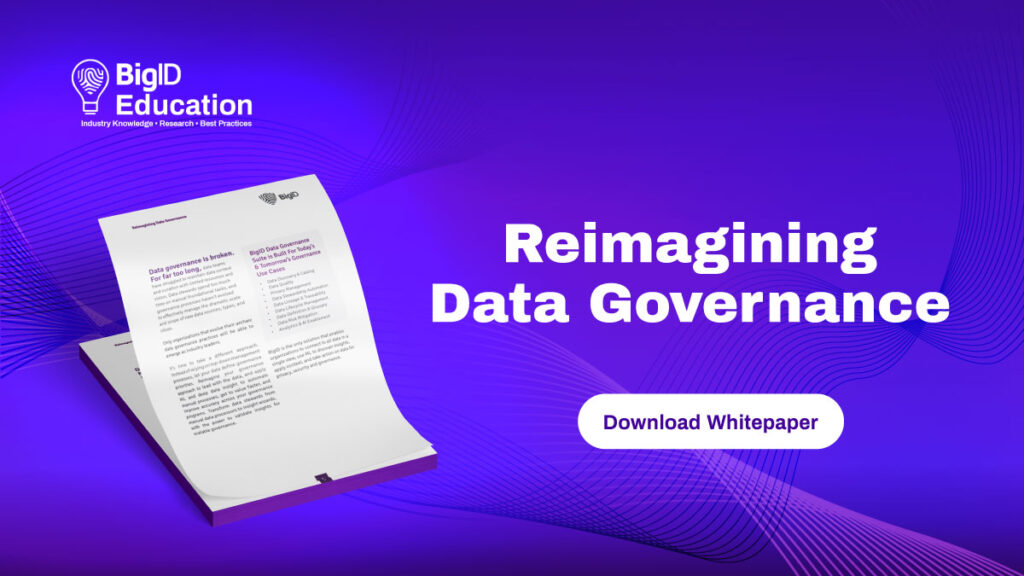AI Governance Best Practices For Business Leaders: Creating Transparency in AI Systems
AI governance is rapidly evolving to keep up with innovations in this technology. As such, businesses prioritizing responsible and ethical AI practices will be better positioned to succeed in the long term.
What is AI Governance?
Recently, there have been increasing discussions and developments related to AI governance, which refers to the rules, policies, and frameworks that govern the development, deployment, and use of AI-based technologies.
Governments and organizations worldwide are recognizing the importance of responsible AI governance. Responsible AI governance ensures that AI is developed and used ethically, transparently, and in the best interest of society. This includes addressing concerns around privacy, bias, fairness, accountability, and safety, fundamental to the governance of AI in any sector.
Businesses must be aware of the emerging regulations and guidelines related to AI governance and ensure that their intelligent systems are designed and implemented in compliance with these standards. They’d need to incorporate ethical considerations into their AI development processes. Additionally, they’d need to conduct regular audits and risk assessments to provide clarity and explanations for AI-driven decisions.
Finally, businesses may need to consider AI’s potential impact on their workforce and customers and implement measures to address any negative consequences or mitigate risks.
Why is AI Governance Needed?
AI governance is needed for several reasons:
Reducing Ethical Concerns
AI-powered technologies have the potential to significantly impact individuals and society, such as through privacy violations, discrimination, and safety risks. For example, any biases inherent in the training data can creep into the model’s decision-making process. It can influence the results produced by generative AI.
An AI risk management framework can help prevent such issues. AI safety and governance frameworks help ensure that these technologies are developed and used ethically and in the best interest of society.
Eliminating Ambiguity
AI algorithms are often complex and opaque, making it difficult to understand how decisions are made. This lack of clarity means users can’t trust these systems. Governance frameworks promote transparency, which can help build trust in AI technologies and enable effective oversight. Clear documentation can help provide insights into how the AI developers have structured the decision-making process.
Creating Accountability
The use of AI technologies can significantly impact individuals and society, and it is essential to hold those responsible for any negative consequences accountable. AI policies and regulations establish accountability mechanisms, such as liability and redress, to hold responsible parties accountable. With accountability built into the system, stakeholders must adhere to legal and ethical standards.
Encouraging Regulatory Compliance
Governments worldwide are increasingly introducing regulations related to AI, such as data protection laws and ethical guidelines, in an effort to govern AI effectively and ensure that AI systems are compliant with these standards. Compliance with these regulations is critical for organizations to avoid legal and reputational risks.
Driving Innovation
AI governance guidelines can foster innovation by providing clarity and certainty around the ethical and legal parameters within which AI-led technologies must operate. This can help organizations make informed decisions about developing and deploying these technologies.
Pending and Active AI Governance Legislation
Here are some legislations that governments and federal agencies are proposing for AI safety and security. These promote the responsible use of AI, help reduce risks, and promote effective governance.
National Artificial Intelligence Initiative Act of 2020 (NAIIA)
The National Artificial Intelligence Initiative Act of 2020 (NAIIA) is proposed legislation aimed at advancing AI research, development, and policy in the United States. If enacted, it could significantly impact AI governance by setting standards, promoting responsible AI practices, and providing resources to strengthen AI capabilities while addressing potential regulatory challenges and ethical considerations.
Algorithmic Justice and Online Transparency Act
The Algorithmic Justice and Online Transparency Act is proposed legislation designed to regulate and reduce ambiguity in algorithmic systems, particularly in online platforms. If enacted, it could shape the future of AI governance by requiring accountability, fairness, and openness in AI algorithms used in various online services. This would influence how companies handle sensitive data and algorithmic decision-making.
AI LEAD Act
The AI LEAD Act focuses on improving the development and use of artificial intelligence by addressing workforce development, research, and international collaboration. If enacted, this governance structure could positively impact AI Governance by fostering responsible AI practices, promoting AI research, and facilitating international cooperation on AI standards and regulations, contributing to a more ethical and secure AI ecosystem.
AI RMF
The NIST AI Risk Management Framework (AI RMF) was introduced to help organizations design, develop, deploy, and use AI-powered systems in a manner that manages the associated risks while promoting trustworthy and responsible AI development and use. Released by the National Institute of Standards and Technology, the AI RMF is flexible, adaptable, and non-sector-specific. It allows for broad application across various industries.
The AI RMF emphasizes practical guidance for incorporating ethical considerations and ensuring AI safety, reliability and fairness. It supports continuous improvement and risk assessment throughout the AI lifecycle, fostering innovation while protecting societal values.
EU AI Act
The EU AI Act is a comprehensive legislation that ensures the safe and ethical development and deployment of artificial intelligence within the European Union. It categorizes AI systems based on their risk levels—from minimal to unacceptable—and imposes specific obligations and restrictions accordingly. High-risk systems, which include those used in critical infrastructures, employment, and law enforcement, are subject to stringent requirements such as risk assessments, data governance, and human oversight. The act also identifies certain AI practices as unacceptable. These are prohibited to prevent harm and protect fundamental rights.
This legislation represents a significant step in establishing legal standards for AI, similar to the GDPR’s impact on data privacy. It includes provisions for clarity and accountability, requiring that AI systems be designed to ensure safety and fairness. It sets penalties for non-compliance and establishes a governance protocol to enforce these rules across the EU. This act is poised to influence global AI standards, promoting the European approach to technology regulation internationally.
How to Prepare for AI Governance
To prepare for emerging regulations for AI, organizations can take the following steps:
- Stay Informed: Keep up-to-date with the latest developments in AI regulations by following relevant news sources, attending industry events, and engaging with experts in the field.
- Conduct an AI Audit: Perform a comprehensive audit of your organization’s AI-based systems to identify potential risks or ethical concerns, ensuring the advancement and governance of AI align with established AI principles. This includes assessing data collection and usage practices, algorithmic decision-making processes, and impact on stakeholders.
- Develop an AI Ethics Framework: Create a policy outlining your organization’s values, principles, and policies for responsible AI development and use. This document should include guidelines for risk management, data privacy, bias mitigation, clarity, and accountability.
- Train Employees: Ensure that all employees involved in developing, deploying, or using AI-based technologies are trained on ethical considerations and best practices for AI governance.
- Implement Monitoring and Reporting Mechanisms: Establish monitoring and reporting mechanisms to track the performance and impact of your AI systems over time. This includes regular assessments of the system’s accuracy, fairness, and potential biases.

AI Governance Framework Examples
AI Governance policies can be applied across various industries to ensure responsible AI use and data security. Here are some industry-specific examples:
Healthcare AI
Patient Data Protection: AI Governance in healthcare ensures that patient medical records and sensitive health data are accessed only by authorized healthcare professionals. Data encryption, strict access controls, and anonymization techniques protect patient privacy and promote responsible use.
Clinical Decision Support: AI can enhance decision-making in medical diagnostics and treatment planning. AI Governance solutions ensure that AI recommendations align with medical ethics and regulations while maintaining data security.
Government AI
Public Safety: AI is used for surveillance and threat detection. Governance of AI ensures that data collected for security purposes is used within legal boundaries and that individual privacy is respected.
Public Services: AI in public services, such as healthcare or transportation, must adhere to strict data protection standards outlined in governance frameworks to maintain citizen trust.
Education AI
Personalized Learning: AI can tailor educational content for students. Governance ensures that student data privacy is maintained and AI platforms are used to improve learning outcomes without compromising security.
Administrative Efficiency: AI can optimize administrative processes. Regulations, in this case, can ensure AI protects sensitive student records and ensure compliance with data protection laws.
Retail AI
Personalized Marketing: AI-driven recommendation systems enhance customer experiences. Governance ensures customer data is used responsibly, anonymized when necessary, and protected against unauthorized access.
Inventory Management: AI helps optimize inventory levels. Governance guidelines ensure data accuracy and security in supply chain operations.
AI Governance Best Practices
Here is a step-by-step approach for companies to use AI responsibly without compromising the use of sensitive data or risking exposure, ensuring compliance with artificial intelligence governance standards:
- Data Governance and Classification:
- Start by establishing a clear data governance protocol within your organization.
- Classify your data into categories based on sensitivity, ensuring that sensitive data is clearly identified and protected.
- Collect and retain only the data that is necessary for your AI applications.
- Implement strict access control measures.
- Conduct Privacy Impact Assessments (PIAs) to evaluate the potential risks to individuals’ privacy when implementing AI systems.
- Ensure that your AI models and algorithms are transparent and explainable.
- Implement measures to detect and mitigate bias in AI models, especially when dealing with sensitive data.
- Define data retention policies that specify how long sensitive data will be stored.
- Use secure and well-maintained data storage solutions.
- Train employees in responsible AI use and data handling practices.
- Consider engaging third-party auditors or experts to assess your AI systems for compliance and security.
- Develop a robust incident response plan in case of data breaches or security incidents.
- Continuously monitor the performance of your AI systems and data protection measures.
BigID’s Approach to AI Governance
BigID’s approach to AI governance sets it apart in the industry by putting data privacy, security, and governance at the forefront of its solutions. Using advanced AI algorithms and next-gen machine learning, BigID enables organizations to understand their data better and comply with regulations while empowering them to discover their enterprise data in all its forms.
As the importance of AI governance continues to grow, BigID remains at the forefront of the conversation, delivering cutting-edge solutions that prioritize privacy, security, and compliance with a data-centric approach.
Find out how BigID enables data governance automation.


